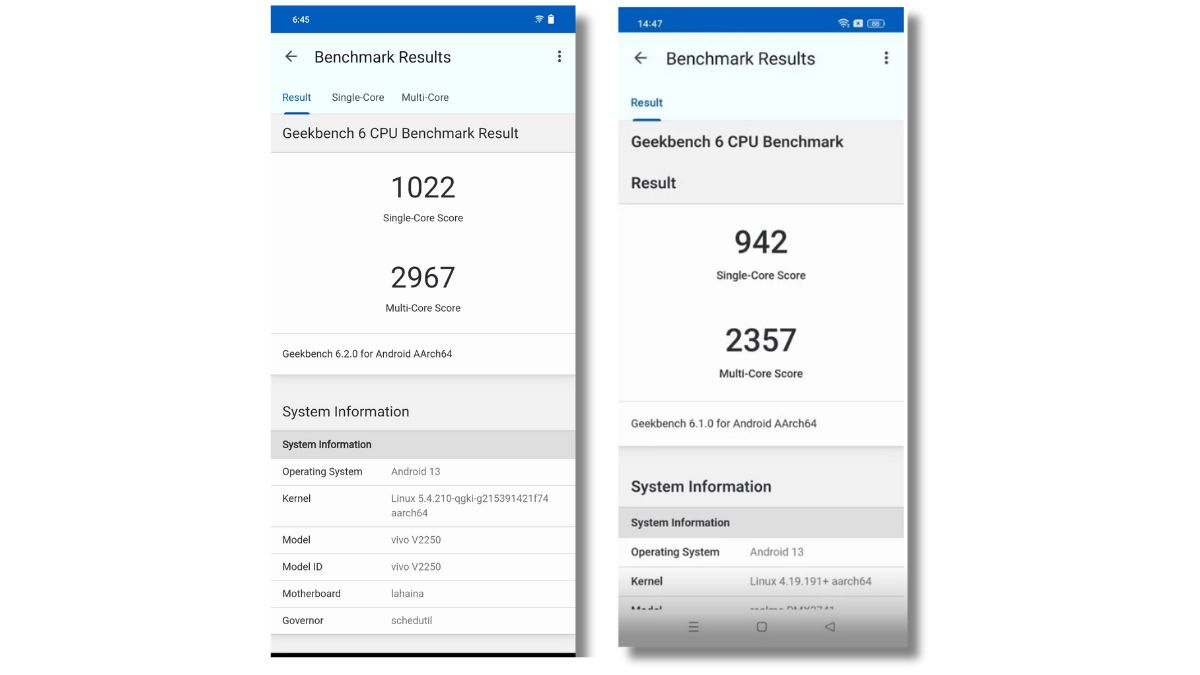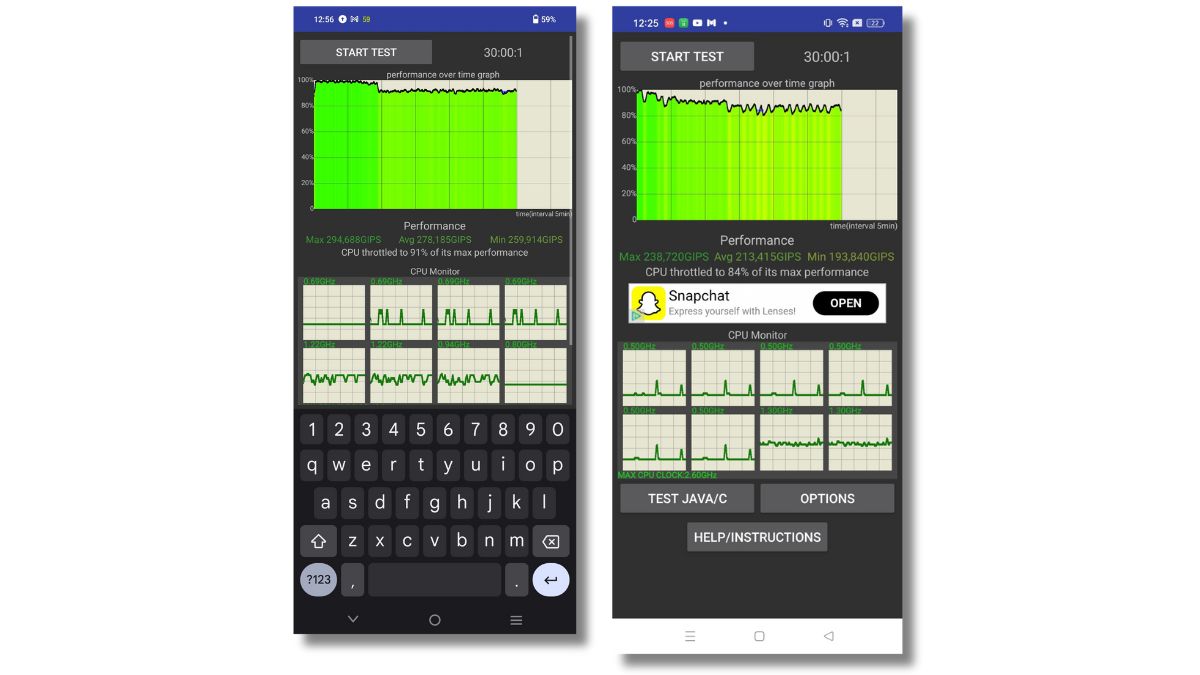
There are a lot of similarities between Vivo’s recently-launched Vivo V29 (review) and Realme’s Realme 11 Pro+ (review) of early this year. The two smartphones feature sleek designs and focus heavily on cameras, specifically the rear camera system. They also support ultra-fast charging, capable of juicing up devices in less than an hour. Both even feature a curved display.
However, powering the two smartphones are chipsets from different manufacturers, which also explains the price difference. The Vivo V29 (starts at Rs 32,999) draws power from Qualcomm’s Snapdragon 778G SoC, while the Realme 11 Pro+ (starts at Rs 27,999) packs MediaTek’s Dimensity 7050 SoC. Both chipsets are based on the 6nm process with eight cores to ensure smooth and efficient performance. But which phone fares better? Here’s a performance-wise comparison between the Vivo V29 and Realme 11 Pro+.
| Vivo V29 | Realme 11 Pro+ |
| 6nm octa-core Qualcomm Snapdragon 778G SoC with four Cortex-A55 clocked at 1.9GHz and four Cortex-A78 clocked at up to 2.4GHz | 6nm octa-core MediaTek Dimensity 7050 5G SoC with two Cortex-A78 clocked at 2.6GHz and six Cortex-A55 clocked at 2.0GHz |
| Adreno 642L GPU | Mali-G68 MC4 GPU |
| Up to 12GB of RAM | Up to 12GB RAM |
Table of Contents
Geekbench

The Geekbench test offers a better idea of how the chipsets handle stress tests. The test also evaluates the memory performance, including the ability to read and write data. When we ran the test on the two phones, the Qualcomm chipset on the V29 performed relatively better. It achieved 1,022 points in the single-core and 2,967 points in multi-core tests. Whereas, the Realme 11 Pro+ scored 934 and 2,358 points, respectively.
AnTuTu

Unlike Geekbench, AnTuTu evaluates the overall performance of the smartphone, including the CPU, GPU, memory, storage, and user interface performance. User interface assessment evaluates the animations, fluidity while switching apps, home screen response and so on. Again, the more expensive Vivo 29 attained a higher score. It achieved 5,87,520 points compared to Realme 11 Pro+’s score of 5,43,205 in AnTuTu.
CPU Throttling Test

We used the CPU Throttling Test app to check the stability of the chipset under heavy load. We adjusted the settings to 50 threads for half an hour on both devices. The result was again in favour of the Vivo V29, which only throttled to 91 percent of its peak performance. The Realme 11 Pro+ throttled to 84 percent of its peak performance.
Gaming


Neither the Realme 11 Pro+ nor Vivo V29 are gaming-focused smartphones, though they can handle some popular titles, including BMGI (Battlegrounds Mobile India). Both phones only support up to “HDR” graphics at 60fps. Generally, I prefer playing in “smooth mode” with a high refresh rate. Both phones perform more or less in a similar fashion, but the Realme 11 Pro+ offers better audio with its stereo speakers. However, you will notice fewer heating issues on the Vivo V29.
Verdict
Overall, I’d pick Realme 11 Pro+ over Vivo V29 for gaming due to its sharper display and audio performance. However, if you’re not an avid gamer, the Vivo V29 is a better choice as the phone handles multitasking more efficiently.

The Vivo smartphone also includes a unique Smart Aura ring light that improves lowlight photography by a wide margin. You can check our camera comparison of Vivo V29 and Redmi Note 12 Pro+ here.












